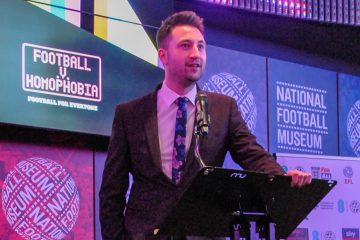‘Football has helped me so much’ – Parker Dunn Q&A for Trans Awareness Week
“Having people in the game who you can talk to makes you feel like you’re not in it alone” – that’s why Parker joined the LGBTQ+ Professionals in Football Collective; he talks with us to mark Trans Awareness Week, which concludes this weekend – it’s followed by Transgender Day of Remembrance…
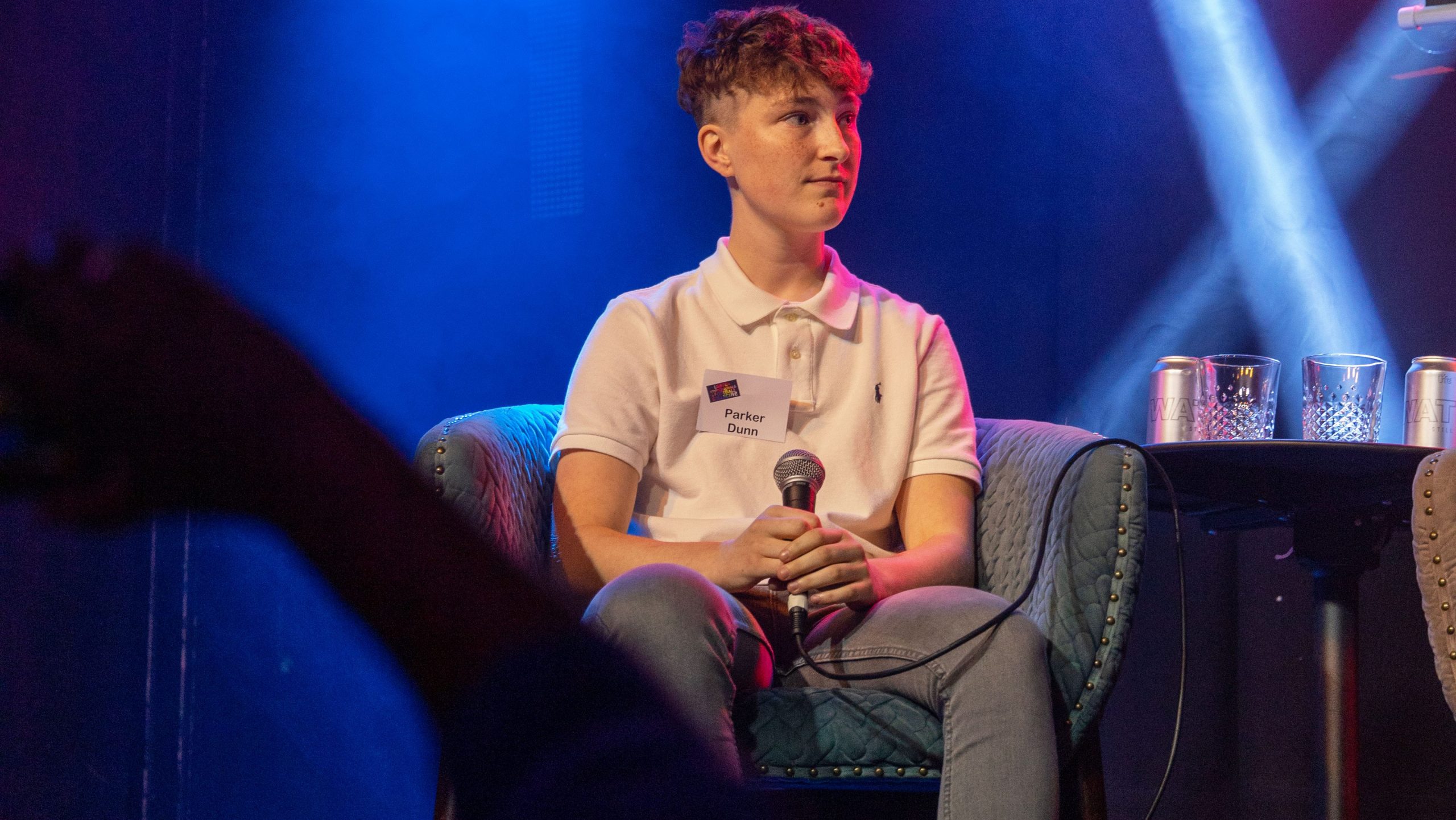
Public speaking wasn’t something Parker Dunn had done before when he joined the panel for the LGBTQ+ Professionals in Football Collective launch event during Pride Month.
However, he quickly found it was a skill that he was well suited for, having already built a large audience on social media.
Parker was a big hit with attendees on the night, as he discussed his season as a defender playing for London Bees FC, the welcoming reception he’d had from staff and team-mates on coming out, his passion for TikTok, and much more.
To mark Trans Awareness Week, Parker is now sharing more of his story in this special Q&A.
Trans Awareness Week is held annually in the seven days leading up to Transgender Day of Remembrance (TDOR) on November 20.
TDOR was first held in 1999 as a memorial to a trans woman named Rita Hester who had been murdered in Massachusetts 12 months previously.
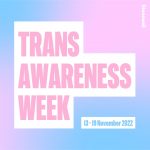
Since 2008, an annual report on the recorded homicides of trans people globally has been published in November by the organisation Transrespect versus Transphobia Worldwide.
The statistics are deeply sobering – the recently released 2022 edition showed 327 reported murders.
Information on TDOR is also available on the website tdor.translivesmatter.info.
In a football context, the information is particularly relevant as we head into the FIFA World Cup in Qatar (more on that below…)
In the last few weeks, Human Rights Watch released its own report about the abuse and arrest of LGBTQ+ people in the host nation, with six Qataris describing their ill-treatment – four of them were trans women.
By encouraging others to mark Trans Awareness Week, we can all play a part in helping to make society more welcoming for trans and gender-diverse people.
With Parker’s assistance, the LGBTQ+ Professionals in Football Collective hopes to further educate the community in the game about the lived experiences of trans people, the issues they face in society, and the importance of allyship.
Here’s what he told us…
Hi Parker! Tell us about your football journey…
I never really knew that I was trans, growing up. It was a complete surprise to me. I came across a video on YouTube and I was able to connect with it a lot.
Football has helped me so much. Mental health wise, it’s so much to keep that inside. When you finally come out, it’s a massive release – it’s hard to explain the feeling. If I didn’t play football, I don’t know where I’d be.
Thinking about before I came out, if I’d had groups like this, it would have been so much easier. I struggled a lot with who I was. If I’d had role models to look up to, I think my transition and also my progression through sport would have been a lot easier too.
Parker, speaking on the Collective launch panel
What made you decide to be more visible?
Two months after coming out, I decided that if I couldn’t see anyone in the game like me, I was going to be that person.
So I started up a TikTok account. I’ve had so many people, especially academy players, come to me and say, ‘hey, I’m also trans, but I don’t want to say yet because what if my coach doesn’t accept me? What if I lose my contract in my academy? How can I be different and still play the game?’
I just wanted to spread awareness and to say that if I can do it, you can do it too.
At the time you came out, you were playing for London Bees. What was that experience like?
I had a very supportive coach and team-mates. I came out to my coach after we did an analysis session. I walked up to her and said, ‘can I talk to you quickly? I’m trans, I just thought I’d let you know. Is that OK? Can I use my name and pronouns?’
She was lovely. She said, ‘yes, absolutely’, and asked if I needed help telling my team. I did that on my own – I told my team, and they were all supportive.
What are some of the challenges that a trans guy might face in coming out in women’s football?
The barriers can be name and pronouns, and the language that we use in the game anyway. To then change it for other people can be really hard but I’m lucky I do have that support.
You’re going to have adversity but it will grow you, if you take it with confidence. I welcome it.
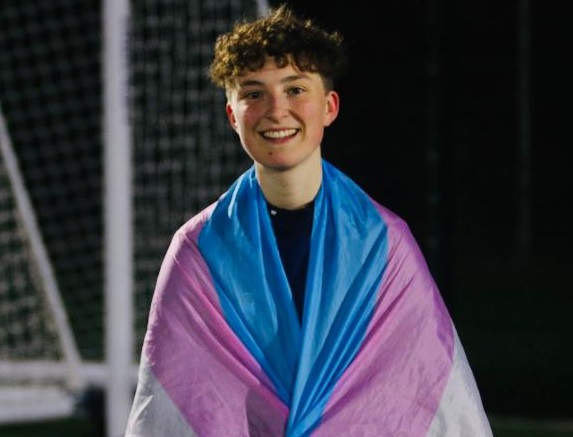
What could football clubs and organisations do to help make the game more inclusive for trans and non-binary people?
It comes down to education. We can’t expect people to understand our point of view if we never give it, or never share it. So we need advocates going into clubs to say that there are people in the game who are like you too.
Something like little stripes on a shirt – one for ‘he’, two for ‘she’, a crossed stripe for ‘they’ – that could really help not just players but match officials too. It means that if I’m playing on a pitch, I can be identified and feel included. Small things like that would make a big difference.
Why is it important for football in particular to mark Trans Awareness Week?
In the game at the moment, there aren’t that many trans people who are out and who feel able to share their story. We need some visibility because it shows everyone that there are people like us playing football and that the game can be inclusive. Having those stories could be the difference between someone dropping out or staying in – just seeing someone like you.
For me personally, it means so much. For a long time, I kept my identity hidden inside and I couldn’t express it. So to come out and be myself, play at a high level and in fact do better than what I did before, I think it’s important to show that.
What advice would you give to a fellow player from the women’s game who is reading this and has been struggling with their gender identity?
Firstly, just be patient. You’ll know when it’s the right time on your journey to be visible and to come out to one or more people in a way that works for you.
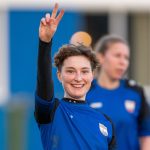
Try not to be scared to just be yourself. I was fearful for a long time and thought that coming out would be impossible – it can feel like there are so many things that are stacked up against you.
But if you do open up and express how you’re feeling, you’ll find that there are people who will help. You won’t get it right all the time and neither will they, but the support is there.
Finally, it’s OK to be ‘different’. Don’t let anyone tell you that you can’t live your dreams because of your gender identity. And if you’re not seeing the type of role model that you need, you could even become that person for others.
What are your thoughts heading into this FIFA World Cup?
I have mixed feelings. Now that it’s here, I want to watch it and be a part of it – but it’s so hard to support something that you feel left out of.
I’d always want to go and watch a World Cup in person but I didn’t feel like I could do that this year.
Some good can come from this tournament – a lot of awareness is being raised about different aspects of human rights, and that’s positive. But how can it truly be a World Cup for everyone? It’s left me very conflicted.

A big thank you to Parker! To learn more about his football journey, follow him on TikTok and Instagram, and subscribe to his YouTube channel.
This Q&A first appeared in the LGBTQ+ Professionals in Football Collective newsletter.
To sign up and learn more about connecting, just head to lgbtqfootball.com/joinus and follow the instructions.
Sports Media LGBT+ is a network, advocacy, and consultancy group that is helping to build a community of LGBTQ+ people and allies in sport. We’re also a digital publisher. Learn more about us here.
We’re interested in your news and stories. Share with us and tap into a worldwide audience through our Google News affiliate website and our popular social channels with over 15,000 followers. Contact us to discuss how we can help you.
